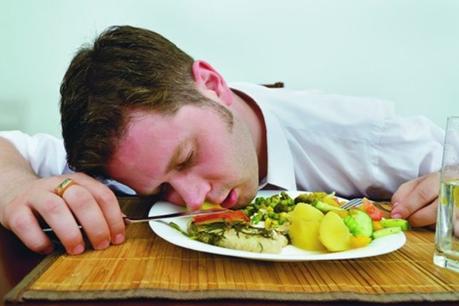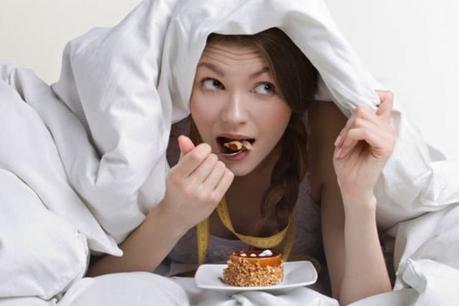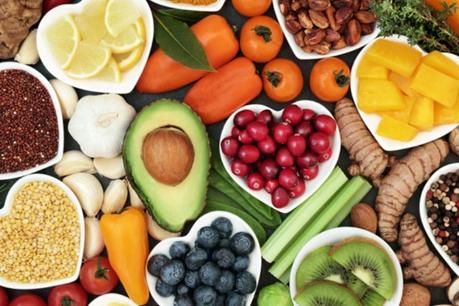Many of us tend to sleep right after eating without knowing the fact how dangerous it can be. Let’s find out is it right to sleep after eating or not.
We as humans need our metabolism on its feet and efficient with the ongoing busy lives to cope up with the basic needs every day requires. To maintain the right diet and sleep is one of the essential parts of our lives that is overlooked and ignored.
Our whole health revolves around a proper routine. Our body is a machine that needs to be worked properly. So good coordination between rest and diet is needed. One of the mistakes that people mistake is getting into bed right after dinner. This mistake can cause problems short and long term.
Let’s find out how!
Why do you feel sleepy immediately after eating?

The feeling of tiredness and fatigue after eating is quite commonly found in people and hinders their post eating tasks. There are various reasons to which this occurs one of the main reasons is the shoot of insulin levels after a heavy meal, foods that are more balanced in nutrients and overall light tend to make us feel more energized than worn out.
After insulin levels increase our brain releases sleeping hormones called serotonin that causes the feeling of drowsiness. Food also causes the release of melatonin. Melatonin is formed when the body converts amino acids tryptophan into serotonin which is then converted into melatonin. These changes cause the body to slow down to help the digestion process. Other than heavy meals different types of foods trigger different responses as diverse mineral-rich foods have different effects.
Overeating can also cause sleep as then the body requires more energy to help with the digestion process while slowing the body down. Bad sleeping habits and different health conditions also contribute to the factors.
To prevent all this, a balanced diet, good sleeping schedule with proper physical exercise can reduce chances of feeling tired and make our metabolism healthy.
What problems can occur due to sleeping after a meal?
Sleeping right after eating is highly inadvisable being scientifically proven toxic to our metabolism and overall health. While sleeping retards the metabolism process it also gives birth to long terms health conditions and diseases. Our body needs to be in an upright position for the digestion process so laying down right after a meal can cause digestive diseases. And the body needs to digest and burn fat so a habitual rest after meals can cause a lot of weight gain and bring in diseases caused by obesity.
Making healthy food choices before sleep can help with restricting weight gain. Other than weight gain there are more painful and vexatious effects of Heartburn and Strokes.
-
Heartburn
After lying down the feeling of rest may seem relaxing but it puts the digestive hard at work increasing the production of stomach acid which can spread up to your chest and throat causing heartburn (acid burn) that feels painful and can obstruct your sleep.
-
GERD
If acid burns happen more than twice a week they turn into GERD which stands for gastroesophageal reflux disease. The gastroesophageal sphincter is the valve that leads food into the stomach when it stops working the stomach contents are pushed back up into the esophagus causing the ‘reflux’ so the feeling of heartburn is felt.
-
Strokes
Strokes are also found to be a major issue caused due to eating before sleeping. Some factors linked to that such as age, weight, family history of heart diseases, blood pressure and high cholesterol levels. People with problems of cholesterol and diabetes are advised to be more precautious.
-
Sleeping issues
Other than that there are foods that that can hinder sleeping patterns. They give the brain a hard time and disturb the sleep overnight. Eating a balanced meal can help the brain create neurotransmitters that it needs for the body to sleep.
Read about Unique Ways for Good Night Rest.
How long should you wait after eating?
Having a snack and dropping on the couch to enjoy some TV always seems fun. But is it worth it? Science says dinner should be taken at least two hours before bed. Going right into bed after having food can cause bloating, weight gain and other diseases. As our body gets ready to digest food it is high time so staying upright benefits the work put into metabolism. Improper digestion again leads to diseases fore mentioned.
Eating an hour or two before not only helps digestion but helps in maintaining a good eating routine. So in the morning our body is energized and ready for breakfast. Even exercise three hours before bed can disrupt sleeping routines. As foods play a vital role in our metabolism sleeping after a few hours can help to reduce 90% chances of strokes and other diseases.
What are the top 5 meals you should avoid before going to bed?

Some meals need to be avoided before going to bed because they can lead to different health problems and disturbed sleeping cycles.
- On top of this list would be Alcohol. As alcohol is drunk to relax our brain, it can be a cause of insomnia leaving us to feel tired in the morning. Intake of caffeinated drinks and high nicotine can also cause trouble in sleeping as they serve as boosters of energy cells to the brain. Caffeine can take up to 20 hours to be broken down by the body.
- Another food on the list is generally unhealthy food which includes processed food. Fatty foods and processed food are hard to break down and take a lot of time when the stomach is already working hard.
- Coming to desserts chocolates are a big no as they cause a sugar rush, this can cause an increase in melatonin.
- You should avoid spicy foods as they contain a chemical called This chemical speeds up your heart rate and body temperature causing a hard time to drift off. They can also be boosters to heartburns and ulcers.
- Fruits with a high quantity of sugars should not be taken before sleep.
Which foods can help you to better sleep?

As there are foods to disrupt sleeping cycles there are foods to boost metabolism and help you achieve a sound sleep.
- Fiber-rich foods are essential in an everyday diet because they help in faster digestion.
- Yogurt and milk give a healthy boost of calcium which also increases melatonin helping in our sleep.
- Plus a good water intake throughout the day can help with sleep and keep the metabolism working efficiently.
- Whole grain foods, fruits, and vegetables are also beneficial for our immune system.
- The right protein intake before sleep would be fish as red meat should be avoided.
- Different fishes contain B6 a vitamin that causes melatonin to form, a sleep-inducing hormone.
- Walnuts and almonds are also discovered to help in sleep.
Is it healthy to take a nap after lunch? Is it advisable?
One hour power nap after lunch is found to be healthy as science says it makes your brain younger. A nap after lunch can help in memory recovery as your body has worked for over 8-9 hours and needs rest. Hours of sleep leaves the body rejuvenated and refreshed and gives a head start for you to work for the rest of the day.
Learn more about Creative Ways to Fall Asleep Faster in our full review.
Overall Conclusion
Sleeping after eating has an overall bad effect on the body. It increases digestive problem causes hindrance in the metabolism and causes long-term effects. A good 8 hours of sleep will help you feel energized and ready to have a good breakfast and get on with the day. Our choices every day reflect our lives our careers and health so why not make the right ones every day.

